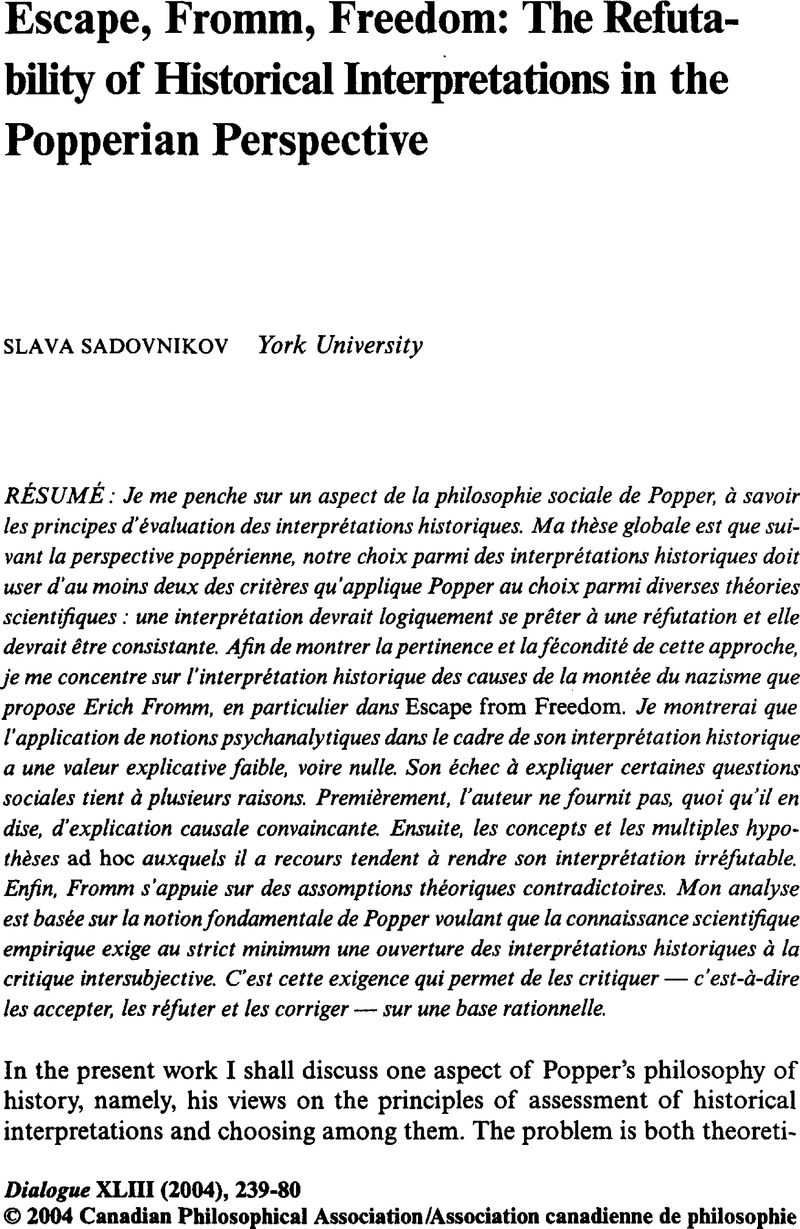Crossref Citations
This article has been cited by the following publications. This list is generated based on data provided by Crossref.
McLaughlin, Neil
2007.
Escape from Evidence? Popper, Social Science, and Psychoanalytic Social Theory.
Dialogue,
Vol. 46,
Issue. 4,
p.
761.



